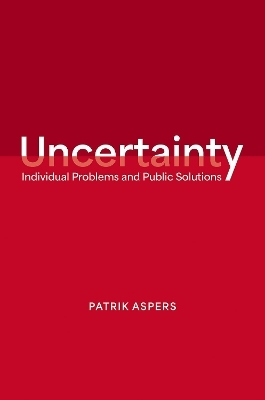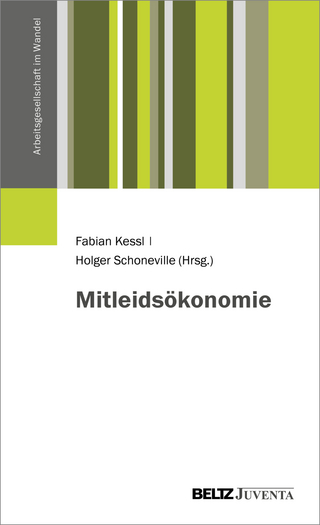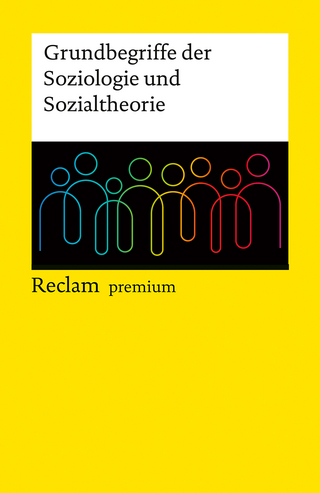
Uncertainty
Oxford University Press Inc (Verlag)
978-0-19-775275-3 (ISBN)
- Lieferbar (Termin unbekannt)
- Versandkostenfrei
- Auch auf Rechnung
- Artikel merken
This is an open access title available under the terms of a CC BY-NC-ND 4.0 International licence. It is free to read on the Oxford Academic platform and offered as a free PDF download from OUP and selected open access locations.
In Uncertainty, Patrik Aspers provides detailed analysis of publicly available means of uncertainty reduction. Drawing on phenomenology, social constructionism, and the sociology of knowledge, Aspers considers the meaningful differences between uncertainty and risk, the different ways people cope and have coped with uncertainty through history, the importance of knowledge and science to reducing uncertainty, and the trade-offs involved in reducing forms of uncertainty while leaving open opportunities for others.
People may have access to unique and private knowledge that reduces their uncertainty when making decisions. Publicly available knowledge is central for building a society that enables communication based on shared ideas and understanding, instead of falling into bubbles, echo chambers, and private truths. Examples include institutions, laws, standards, evaluation, competition, and ranking. The book addresses how these reduce uncertainty and how these ways are created.
Examining what people can and in fact do to reduce uncertainty, Aspers addresses the existential dimension of uncertainty, the collective efforts and socially produced outcomes that lead to reduced uncertainty, and the social order that results.
Patrik Aspers is Chair of Sociology at University of St. Gallen, Switzerland. His research focuses on theory development. Aspers has studied the economy, especially the fashion industry. He has published several books, including Markets in Fashion: A Phenomenological Approach, Orderly Fashion: A Sociology of Markets, Markets, and Re-Imagining Economic Sociology, co-edited with Nigel Dodd.
Preface
Acknowledgements
Chapter 1: How Much Can We Know?
Part I Principles of States of the World
Chapter 2: Informal Institutions
Chapter 3: Formal Institutions
Chapter 4: Evaluation
Part II: Forms Producing States of the World
Chapter 5: Convaluation
Chapter 6: Deciding for Others
Chapter 7: Contest
Chapter 8: Making and Reducing Uncertainty
Appendix I. A Typology of Convaluations
Notes
References
| Erscheinungsdatum | 19.07.2024 |
|---|---|
| Zusatzinfo | 3 illustrations |
| Verlagsort | New York |
| Sprache | englisch |
| Maße | 155 x 226 mm |
| Gewicht | 476 g |
| Themenwelt | Sozialwissenschaften ► Soziologie ► Allgemeines / Lexika |
| Wirtschaft ► Betriebswirtschaft / Management ► Planung / Organisation | |
| Wirtschaft ► Volkswirtschaftslehre ► Mikroökonomie | |
| ISBN-10 | 0-19-775275-6 / 0197752756 |
| ISBN-13 | 978-0-19-775275-3 / 9780197752753 |
| Zustand | Neuware |
| Haben Sie eine Frage zum Produkt? |
aus dem Bereich


